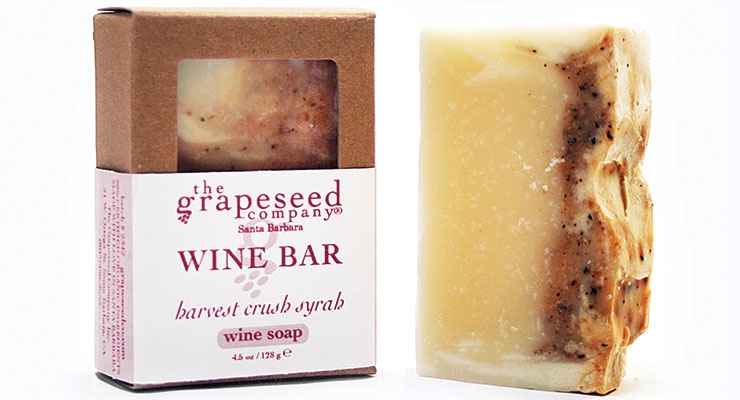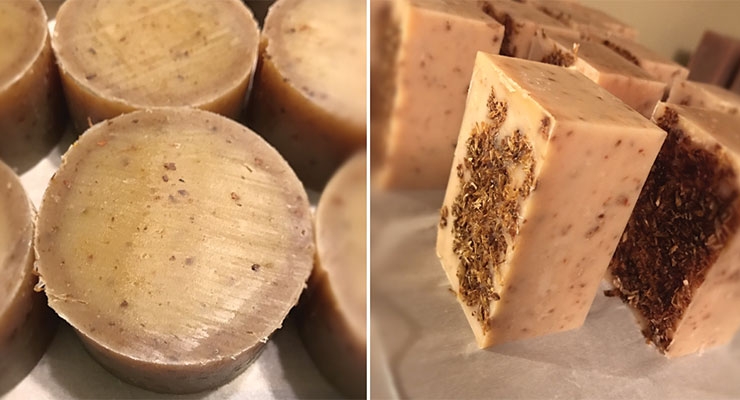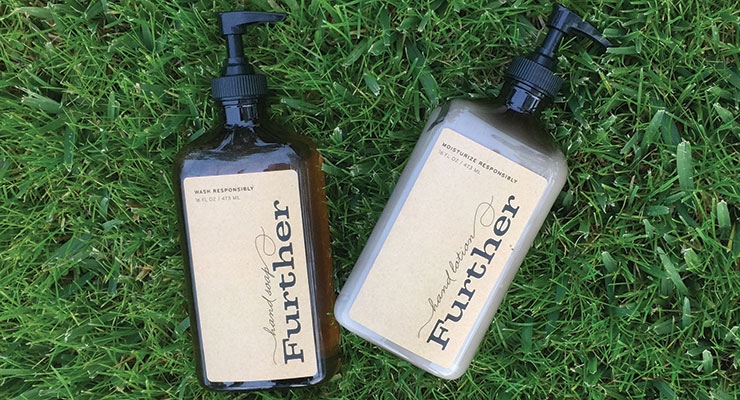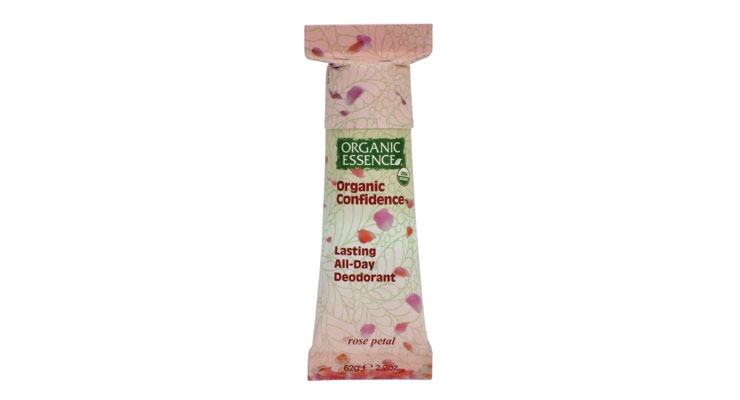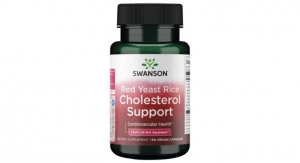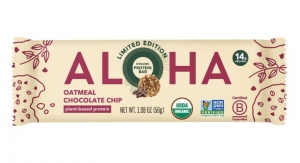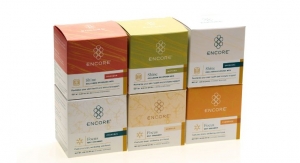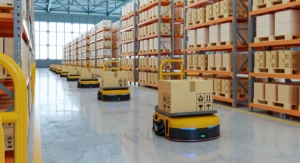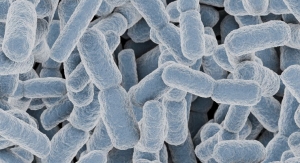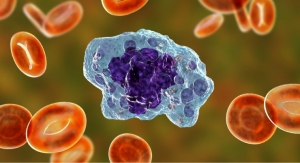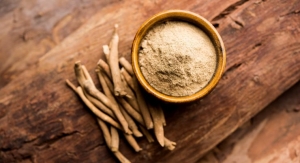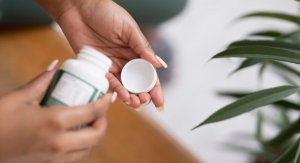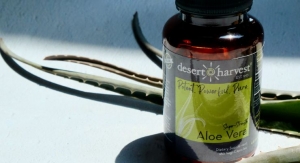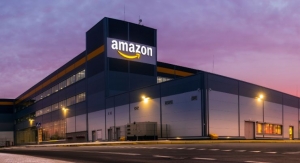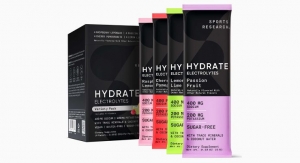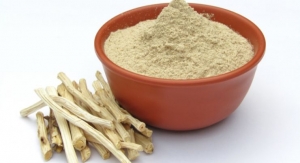By Amanda Baltazar, Contributing Writer09.01.17
The numbers on wasted food are staggering. According to the United Nations Environmental Program, 30-40% of all food in North America goes to waste, which works out to 20 pounds per person, per month, or 20 billion pounds per year.
Some companies are trying to alleviate this problem, and many created their business specifically to reuse waste from other operations.
After Kristin Fraser spent two years traveling on a boat she became aware of how much garbage a person creates. She moved to Santa Barbara, CA, and soon realized the wineries in the area were all creating a lot of waste.
When wine is made, what’s left behind is grapeseed oil, grapeseed extract, crushed grape seeds, and grapeseed butter, and these contain products such as antioxidants, polyphenols, and resveratrol, “all of which have anti-aging properties,” Ms. Fraser said.
In 2004, Ms. Fraser set up The Grapeseed Company, making products including soap, cleansers, lotions, scrubs, hair products, and men’s products like aftershave balm, using byproduct from the wineries.
At this point, Ms. Fraser works mostly with Californian producers, along with a few in Oregon, and is committed to sourcing only U.S. product. The producers provide the byproduct free of charge, since they’d need to dispose of it otherwise, she explained. “We get it for free but we have to sort it, so it’s a lot of time and labor to get it ready for use. It either has to be dried in the sun or pressed into an oil.”
Thirteen years after The Grapeseed Company was established, most of the company’s business is wholesale to winery stores, spas, and to Whole Foods and TJ Maxx. There are also two company stores—in Carpinteria, CA, and Santa Barbara, CA. Ms. Fraser also sells through her website.
Her customer base has mostly been middle income, educated women, aged from their mid-20s to their 60s. “When people start to see their skin changing, they want something for anti-aging, but more and more, they want something natural,” she said.
These customers are also willing to pay the higher prices that natural products command, though Ms. Fraser said the cost of Grapeseed’s products are on the lower end for the luxury natural market. “When we started we were possibly seen as on the expensive end, but the landscape has changed a lot.”
And while the prices may seem high, unlike most products on the beauty market, Grapeseed Company’s contain no water, so are very concentrated. “We keep prices low by doing everything in-house,” Ms. Fraser said.
It’s not just about using up waste for Ms. Fraser, “but also that the products are natural; it is really important to keep down the trash we make for the world.”
Brewing Soap
Noah Foster and his brother Giles established Suds Brewing Company in 2015 to deal with waste from the booming craft beer industry in Cleveland, OH.
The brothers use hops, beer, and grain such as wheat, barley, and oats to make four types of bar soap. They purchase additional ingredients, including honey from a local beekeeper.
“Local breweries give us waste beer and spent grains, so instead of that going down the drain we take it and turn it into soap,” Mr. Foster said. The breweries give them the waste for free, to get it off their hands.
From just one brewery, he said he gets around 1,152 oz. of beer waste each month. “Beer is made 95% from water, so from just one brewery that’s 1,094 oz. of water wasted per month,” he said. “In Ohio there are at least 190 breweries and projections say 40 new establishments will open per year. That’s the potential for a lot of waste.” The Fosters don’t use any additional water in their products.
Hops have anti-inflammatory properties, which can soothe and calm irritated skin, so are ideal for products like these. The grains the company uses all work as exfoliants.
Once the soap is made, the Foster brothers sell it back to the breweries, and to local stores, barber shops and through their website.
Mr. Foster hopes Suds will continue to grow. He plans to approach more breweries and would like to make them their own soap, featuring their name; and he’d like to get into big stores like Whole Foods.
Cleaning Up Restaurant Grease
Further Products in Los Angeles also got its start with soap, using leftover glycerin from making fuel in a garage.
“I decided to make it nicer, and make it smell good,” said Megan Dostal, who owns the company with her husband Marshall. “It was very homegrown.”
Ms. Dostal found a larger source for the grease she could use: restaurants. The couple began turning restaurant grease into fuel in their garage, using that for their personal and company vehicles, and turning leftover glycerin into soaps. “It was at the time when people really started to think about being green and natural so this is now what we do full time, and we have a crew and a warehouse and sales reps all over the country,” said Ms. Dostal, who’s been selling the soap on a commercial level since 2004.
Since grease is a commodity, sometimes the Dostals pay for it and sometimes they don’t. They work with grease haulers locally and also across the country.
“It’s pretty gross; it’s smelly and a nasty thing,” said Ms. Dostal, who started off purifying it in her garage, but now has a facility dedicated to it. She and her husband also used to make the soap, but the quantities are now so high that a separate company makes it, though the Dostals still produce the glycerin.
Thirteen years after it began, Further Product’s best-seller is a 16-oz. liquid hand soap. “That’s the gateway drug,” Ms. Dostal said. Other products include bar soap, dish soap, a hand lotion, candles, and a fragrance. The company sells to retailers across the country including Dean & DeLuca, restaurants—including those the grease comes from—universities, shopping malls, and office buildings.
Further Products provides mirror clings and signage for restaurants to tell the story that the grease came from there, or they provide a framed picture with that information. “If restaurants are going to do something, they have to share it,” said Ms. Dostal.
Perfecting Paper
Organic Essence, based in Crescent City, CA, doesn’t use waste in its products, but it uses waste to package them. The company uses a 100% post-consumer waste paper (sourced in the U.S.) that has been treated with food grade casein to package its tube products (deodorant and lip balm).
“It’s the most expensive paper you can buy, but it works and means something to consumers. They know they’re doing the right thing,” said CEO Ellery West.
There were two reasons for using the waste: To put it to good use, but also because Mr. West wanted to steer clear of plastic. “We learned plastic packaging taints products and half of asthma comes from phthalates, and that comes about half and half from packaging and fragrances,” he noted. The other part is about being sustainable. “That’s the ultimate philanthropy—caring for our environment,” he said.
However, paper packaging has its challenges, so Mr. West has had to work on the formulations of his products to ensure they don’t leak. “My greatest achievement was our deodorant because bathrooms have a range of temperatures. So my challenge was to develop the melt point, the usability of the product, and have it still work with the package. Now it’s one of our most popular products.” Organic Essence uses no water in its products, which also helps prevent leaks.
Organic Essence sells to between 100 and 200 retail accounts in the U.S., but also to overseas importers/distributors who in turn resell to department stores, supermarkets, neighborhood markets, specialty shops, and spas. Between 15% and 20% of domestic sales are direct to customers through the website.
Meghan Stasz is the senior director of sustainability with the Grocery Manufacturers Association (GMA) in Washington, D.C., and she co-leads the cross-industry Food Waste Reduction Alliance (FWRA).
She is not surprised to see what’s happening surrounding wasted food. “Most of the activity in terms of turning waste to new products is happening at the startup level. There has been so much awareness of food waste as an issue and because it happens along the supply chain, people are coming up with some great solutions.”
Ms. Stasz said she expects to see this continue to gain momentum in small, medium, and large companies. “Companies are getting a better measure of what they are using. As soon as they get that data, they see ways to improve. The data piece and the measurement piece will become standard practices—tracking food waste [can] lead to reduction—and most importantly innovation.”
The advantages to companies of using up waste are three-fold, she noted: “You’ve got a major environmental benefit; a major social benefit from donating food; and there’s a business and economic benefit, which trickles down to consumers thinking about using up the food they buy.”
Some companies are trying to alleviate this problem, and many created their business specifically to reuse waste from other operations.
After Kristin Fraser spent two years traveling on a boat she became aware of how much garbage a person creates. She moved to Santa Barbara, CA, and soon realized the wineries in the area were all creating a lot of waste.
When wine is made, what’s left behind is grapeseed oil, grapeseed extract, crushed grape seeds, and grapeseed butter, and these contain products such as antioxidants, polyphenols, and resveratrol, “all of which have anti-aging properties,” Ms. Fraser said.
In 2004, Ms. Fraser set up The Grapeseed Company, making products including soap, cleansers, lotions, scrubs, hair products, and men’s products like aftershave balm, using byproduct from the wineries.
At this point, Ms. Fraser works mostly with Californian producers, along with a few in Oregon, and is committed to sourcing only U.S. product. The producers provide the byproduct free of charge, since they’d need to dispose of it otherwise, she explained. “We get it for free but we have to sort it, so it’s a lot of time and labor to get it ready for use. It either has to be dried in the sun or pressed into an oil.”
Thirteen years after The Grapeseed Company was established, most of the company’s business is wholesale to winery stores, spas, and to Whole Foods and TJ Maxx. There are also two company stores—in Carpinteria, CA, and Santa Barbara, CA. Ms. Fraser also sells through her website.
Her customer base has mostly been middle income, educated women, aged from their mid-20s to their 60s. “When people start to see their skin changing, they want something for anti-aging, but more and more, they want something natural,” she said.
These customers are also willing to pay the higher prices that natural products command, though Ms. Fraser said the cost of Grapeseed’s products are on the lower end for the luxury natural market. “When we started we were possibly seen as on the expensive end, but the landscape has changed a lot.”
And while the prices may seem high, unlike most products on the beauty market, Grapeseed Company’s contain no water, so are very concentrated. “We keep prices low by doing everything in-house,” Ms. Fraser said.
It’s not just about using up waste for Ms. Fraser, “but also that the products are natural; it is really important to keep down the trash we make for the world.”
Brewing Soap
Noah Foster and his brother Giles established Suds Brewing Company in 2015 to deal with waste from the booming craft beer industry in Cleveland, OH.
The brothers use hops, beer, and grain such as wheat, barley, and oats to make four types of bar soap. They purchase additional ingredients, including honey from a local beekeeper.
“Local breweries give us waste beer and spent grains, so instead of that going down the drain we take it and turn it into soap,” Mr. Foster said. The breweries give them the waste for free, to get it off their hands.
From just one brewery, he said he gets around 1,152 oz. of beer waste each month. “Beer is made 95% from water, so from just one brewery that’s 1,094 oz. of water wasted per month,” he said. “In Ohio there are at least 190 breweries and projections say 40 new establishments will open per year. That’s the potential for a lot of waste.” The Fosters don’t use any additional water in their products.
Hops have anti-inflammatory properties, which can soothe and calm irritated skin, so are ideal for products like these. The grains the company uses all work as exfoliants.
Once the soap is made, the Foster brothers sell it back to the breweries, and to local stores, barber shops and through their website.
Mr. Foster hopes Suds will continue to grow. He plans to approach more breweries and would like to make them their own soap, featuring their name; and he’d like to get into big stores like Whole Foods.
Cleaning Up Restaurant Grease
Further Products in Los Angeles also got its start with soap, using leftover glycerin from making fuel in a garage.
“I decided to make it nicer, and make it smell good,” said Megan Dostal, who owns the company with her husband Marshall. “It was very homegrown.”
Ms. Dostal found a larger source for the grease she could use: restaurants. The couple began turning restaurant grease into fuel in their garage, using that for their personal and company vehicles, and turning leftover glycerin into soaps. “It was at the time when people really started to think about being green and natural so this is now what we do full time, and we have a crew and a warehouse and sales reps all over the country,” said Ms. Dostal, who’s been selling the soap on a commercial level since 2004.
Since grease is a commodity, sometimes the Dostals pay for it and sometimes they don’t. They work with grease haulers locally and also across the country.
“It’s pretty gross; it’s smelly and a nasty thing,” said Ms. Dostal, who started off purifying it in her garage, but now has a facility dedicated to it. She and her husband also used to make the soap, but the quantities are now so high that a separate company makes it, though the Dostals still produce the glycerin.
Thirteen years after it began, Further Product’s best-seller is a 16-oz. liquid hand soap. “That’s the gateway drug,” Ms. Dostal said. Other products include bar soap, dish soap, a hand lotion, candles, and a fragrance. The company sells to retailers across the country including Dean & DeLuca, restaurants—including those the grease comes from—universities, shopping malls, and office buildings.
Further Products provides mirror clings and signage for restaurants to tell the story that the grease came from there, or they provide a framed picture with that information. “If restaurants are going to do something, they have to share it,” said Ms. Dostal.
Perfecting Paper
Organic Essence, based in Crescent City, CA, doesn’t use waste in its products, but it uses waste to package them. The company uses a 100% post-consumer waste paper (sourced in the U.S.) that has been treated with food grade casein to package its tube products (deodorant and lip balm).
“It’s the most expensive paper you can buy, but it works and means something to consumers. They know they’re doing the right thing,” said CEO Ellery West.
There were two reasons for using the waste: To put it to good use, but also because Mr. West wanted to steer clear of plastic. “We learned plastic packaging taints products and half of asthma comes from phthalates, and that comes about half and half from packaging and fragrances,” he noted. The other part is about being sustainable. “That’s the ultimate philanthropy—caring for our environment,” he said.
However, paper packaging has its challenges, so Mr. West has had to work on the formulations of his products to ensure they don’t leak. “My greatest achievement was our deodorant because bathrooms have a range of temperatures. So my challenge was to develop the melt point, the usability of the product, and have it still work with the package. Now it’s one of our most popular products.” Organic Essence uses no water in its products, which also helps prevent leaks.
Organic Essence sells to between 100 and 200 retail accounts in the U.S., but also to overseas importers/distributors who in turn resell to department stores, supermarkets, neighborhood markets, specialty shops, and spas. Between 15% and 20% of domestic sales are direct to customers through the website.
Meghan Stasz is the senior director of sustainability with the Grocery Manufacturers Association (GMA) in Washington, D.C., and she co-leads the cross-industry Food Waste Reduction Alliance (FWRA).
She is not surprised to see what’s happening surrounding wasted food. “Most of the activity in terms of turning waste to new products is happening at the startup level. There has been so much awareness of food waste as an issue and because it happens along the supply chain, people are coming up with some great solutions.”
Ms. Stasz said she expects to see this continue to gain momentum in small, medium, and large companies. “Companies are getting a better measure of what they are using. As soon as they get that data, they see ways to improve. The data piece and the measurement piece will become standard practices—tracking food waste [can] lead to reduction—and most importantly innovation.”
The advantages to companies of using up waste are three-fold, she noted: “You’ve got a major environmental benefit; a major social benefit from donating food; and there’s a business and economic benefit, which trickles down to consumers thinking about using up the food they buy.”
|
Companies breathe new life into wasted food. Wasted food has great applications in health and beauty care products, but it’s also being used to create other foods. In California, Imperfect Produce delivers so-called “ugly” fruits and vegetables to consumers; and in 2014, Phil Wong and Ann Yang started Misfit Juicery in Washington, D.C., with the goal of using up produce destined for the garbage can. “We see Misfit as a platform more than a product,” Mr. Wong said. “It’s a vehicle to address some of the esthetic issues of food waste. We think of Misfit as a brand that’s creating a conversation with consumers.” Mr. Wong and Ms. Yang made the first batch of juice in his college kitchen using some ugly peaches and a borrowed blender. Now, Misfit Juicery has seven juice products including 24 Carrot Gold (carrot, apple, lemon, turmeric) and Pear to the People (pear, cucumber, spinach, lemon). The company sells them wholesale to grocery stores and restaurants. So far customers are in New York and Washington, D.C. “Our customers are typically people who think buying our product can make a difference,” Mr. Wong said, “people who are idealists who think there’s a lot wrong with the world but are empowered to make positive change.” What the juices are made from initially starts with the ugly produce the company can procure. “We always start with sourcing,” Mr. Wong said. “What do our farmers and distributors have that can’t be used right now?” Misfit sources locally as much as possible, but also regionally. And the company’s working to handle the gluts of food that come in at certain times—like strawberries in June. “We are working with some companies to do things like flash freezing,” Mr. Wong said. Not all the produce comes from misfits; 70% to 80% of it is, but the company supplements with what it calls “firsts.” Misfit also does its bit with its own leftovers—the fruit pulp. It works with a company that returns this waste to farmers for compost. “Though we have ambitions to turn it into a product someday,” Mr. Wong added. Misfit Juicery is not the only company finding a way to use up product usually destined for the garbage. Food giant Conagra used to flush the lines for its Snack Pak puddings with strange blends of flavors the company threw away or used for animal feed, said Megan Stasz, senior director of sustainability with the Grocery Manufacturers Association. But the company realized it could be more thoughtful and started packaging the flavors up and selling them at a discount to prisons. “They realized they could get a calcium-rich food to the prison population and turn what was once a cost center into a profit center,” she said. The Chicago-based company also repackages end pieces or crooked pieces from its Slim Jim meat snacks into small containers and donates them to a local food bank, Ms. Stasz said. “This means the food banks have a reliable source of protein that otherwise would be thrown away.” Even General Mills is in on the game, Ms. Stasz noted, using grain husks from Cheerios to generate power for its facility. |

